SI's 2019 NBA Awards: Giannis Antetokounmpo, James Harden and the Battle for MVP

The NBA season is coming to a close and the time to make awards selections is here. In a season dominated by a select few teams, it was easy to narrow in on those most deserving of important accolades. Choosing between them proved only slightly tougher, as the SI NBA staff agreed almost down the line on the big awards, rewarding the most prominent team, player and coach of the year in one fell swoop. Without further ado, it's time to get into the awards.
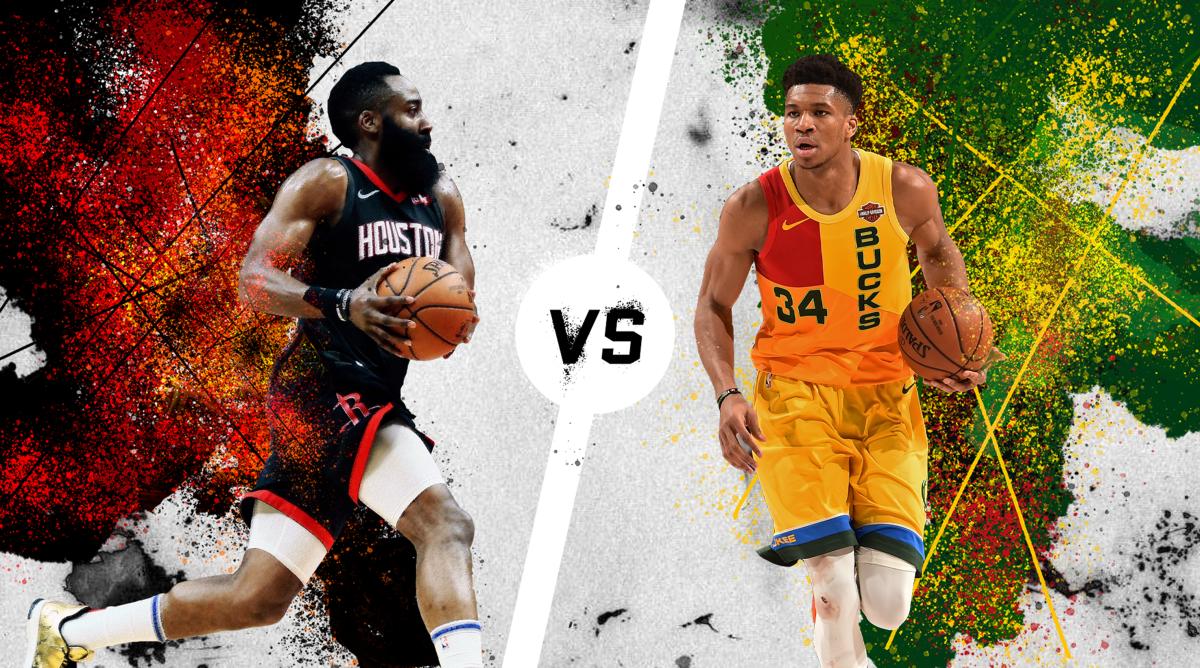
Most Valuable Player
Chris Ballard: Giannis Antetokounmpo, Bucks
Giannis checks every MVP box: best player on an elite team, statistical brilliance, a compelling narrative, and no discernible caveats. He’s a two-way player who could win both MVP and Defensive Player of the Year. He makes others better, is a willing passer, and he plays his ass off. He passes both the eye test and the analytics test (dive in and you’ll see his effect on both offense and defense). Only Harden’s unprecedented offensive season (and accompanying gaudy numbers) makes this interesting but it’s not enough. Extrapolate Antetokounmpo’s numbers to Harden’s minutes—36.8—and they also look surreal: 30 points and nearly 14 rebounds, to go with 6.5 assists. The disparity on defense is too stark. Giannis deserves to win his first MVP. It won’t be his last.
Chris Mannix: Giannis Antetokounmpo, Bucks
There was a stretch—maybe sometime just after the first of the year—that this felt like it was going to be an impossible vote. Giannis was doing all kinds of absurd Giannis things (there was a period where I thought he was dunking lefty on guys just to increase the degree of difficulty), Harden was strapping Houston to his back, Paul George was having a lethal two-way season and Kawhi Leonard looked like the former Finals MVP. It’s still tough—throw Nikola Jokic, Damian Lillard and Kevin Durant into that mix—but Giannis feels like he has separated himself some.
The Bucks have sat atop the Eastern Conference for months, Giannis is doing it at both ends (he’s a sneaky strong candidate for Defensive Player of the Year) and then there is this: The difference between Giannis and the second-best player on his team, Khris Middleton, is far greater than the difference between other MVP candidates and the second-best player on their teams. Now Chris Paul’s injury blows that argument up to a degree, but Paul still suited up for 58 games this season. Without Giannis, is Milwaukee even a playoff team?
Rob Mahoney: Giannis Antetokounmpo, Bucks
There is honestly no wrong answer between Antetokounmpo and James Harden, which unfortunately means there is no strictly right answer, either. Choosing between them somehow rebuffs an extraordinary performance. Harden is one of the most accomplished scorers in the history of the sport, and in the course of saving his team’s season, became the pioneer of a style that only he can deploy. Antetokounmpo played an air-tight, utterly complete season for the most dominant team in the league, buzzing with a kind of second-to-second electricity that’s unique among superstars. I wish there were more consolation in a second-place listing, but honestly, either would be understandably frustrated not to be named the MVP. What more could they do?
Both make clear exactly what they want to do with the ball and yet crush their opponents anyway. Both drive high-powered offenses, though Harden does so more directly and with less assistance. Both are titans of efficiency, even as they reach their high marks in completely different ways. What swayed me to vote for Giannis was the complete nature of his work. There isn’t a second of play in which Antetokounmpo is anything less than overwhelming. Lose track of him on a box out and Giannis will swoop in over your center to punch the ball through the rim. Veer even a step out of position on the break and Antetokounmpo will shrug off your contest completely. Ignore him at the three-point line and he’ll dive to the basket, collapsing your entire defense and creating some wide open look. And that’s just on offense—arguably his lesser side of the ball.
Every star player exerts some kind of pressure on his opponents, but what separates Giannis is that he’s exerting pressure constantly. Most everyone who tries to stop him will be smaller and less athletic, requiring all-but-perfect timing and positioning to have any hope. There is no reprieve. Antetokounmpo will fly around throughout a defensive possession, run the floor in transition, and then attack a set defense from the top of the floor once the action slows down. He is a Defensive Player of the Year who averages 27.7 points per game, a top rebounder who runs a drive-and-kick offense, and the single most imposing force in the league. Harden is a wonder. Giannis is just a nightmare—the kind that makes every possession, and thus every game, his own harrowing reality.
Andrew Sharp: Giannis Antetokounmpo, Bucks
This year's MVP race is a near-perfect inversion of the Harden/Westbrook war that tore apart the internet in 2017—one candidate with unprecedented offensive production, the other with a more traditional case rooted in team success—except that both candidates have even stronger cases than either MVP favorite had two years ago. Harden, now in the Westbrook role, has saved Houston's season and kept them remarkably stable despite injuries, adversity, and a crowded field of West competition. And where some of Westbrook's production looked self-indulgent and counter-productive, Harden remains uber-efficient and the Rockets have the second-best offense in basketball. I can't disagree with anyone who wants to say, "Houston's season should have been a mess for half-dozen different reasons, everyone could see it was about to break bad, and then Harden spent five months playing his ass off and rendering every concern irrelevant." It's a great argument.
Ultimately, I'm still going with Giannis. He's spent seven months powering the Bucks to a top-five defense, a top-five offense, and the best record in basketball. If this race is a tie—and it sort of is—the tiebreaker for me is two-fold. First, Giannis is great on defense and his activity on that end has been every bit as important to Milwaukee's identity as his offense. That's a box that Harden can't check. I'm not one of those "defense is half the game!" people, because in truth, great offense is remains significantly more valuable. But defense matters, and Giannis has been operating on an entirely different plane than Harden.
The other reason I give the nod to Giannis is because he's flat-out the best player in basketball. He's in a tier of his own physically, he's locked-in mentally to a degree that most fans still don't totally appreciate, and his length, strength, and mobility warps the dimensions of the court in Milwaukee's favor in every game that team players. In other words, defense aside, Giannis on offense is its own nightmare for the league. He’s putting 27.7 ppg, 12.5 rpg and 5.9 apg on 57.9% shooting in less than 33 minutes per game. He's been so dominant that his numbers are actually depressed because his Bucks teams are blowing people off the court.
That last note is where the parallels to 2017 fall flat: Harden is an upgraded version of 2017 Westbrook, but the Bucks have been better than any regular-season team and Giannis has been more dominant than any regular-season player. He isn't a better version of 2017 Harden. He's 2016 Steph. He is the MVP.
Rohan Nadkarni: Giannis Antetokounmpo, Bucks
I think the gap between Giannis and James Harden on offense is smaller (in Harden’s favor) than the gap between them on defense, where the Greek Freak is by far the better player. There used to be a time when being the best player on the best team in the league was enough to win this award. I yearn for that old-school simplicity. Giannis was a destructive force on the team that was pretty much wire-to-wire best in the NBA. Does it need to be more complicated than that? Harden saved Houston from the abyss, but he was also on the team while it was faltering. Antetokounmpo’s supporting cast is solid but not loaded. He’s also putting up Shaq-like numbers in the paint. I’m comfortable (fake) voting for him.
Jeremy Woo: James Harden, Rockets
This might be a byproduct of being personally buried in watching college basketball for the last couple months, but is it weird that Harden still feels sort of underrated to me? He’s averaging 36 points per game and it almost feels ho-hum at this point. That’s more than Kobe ever averaged. He’s done it with admirable shooting splits. Giannis is doing stupid, unfair things. He’s going to win this eventually. But I’m partial to Harden here. He deserves it as much, if not more than last season.
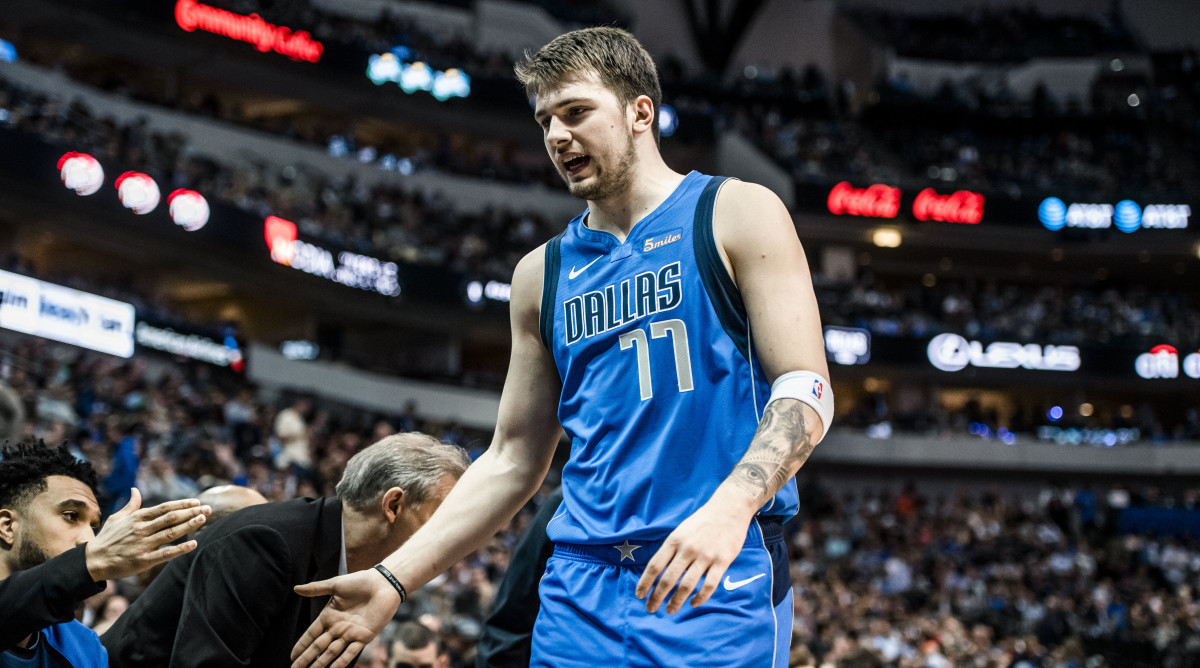
Rookie of the Year
Chris Ballard: Luka Dončić, Mavericks
Not much debate to be had here, other than to say that Trae Young at least made it interesting. Doncic is the full package. He plays like a vet, makes teammates better, knows how to rise to the moment, and should be a blast to watch for the next 15 to 20 years. The confluence of his arrival and Dirk’s departure made a lottery team a joy to watch.
Chris Mannix: Luka Dončić, Mavericks
With due respect to the remarkable run Trae Young went on in the second half of the season, this shouldn’t be close. It’s Rookie of the Year, not Rookie of the Last Three Months, and Doncic was brilliant in November and December while Young was still trying to find his footing. Statistically, Doncic edges Young in most of the significant categories while becoming the first rookie since Oscar Robertson to post a 20-plus point, seven-plus rebound and five-plus assist season in his first year. Young’s second-half play reassures Hawks brass that they didn’t make a mistake making the Doncic/Young swap on draft night. But Rookie of the Year? That’s Doncic’s award going away.
Rob Mahoney: Luka Dončić, Mavericks
For months, Dončić ran for Rookie of the Year effectively unopposed. Credit to Trae Young for crashing the race, though in the end, even his wondrous scoring and playmaking wasn’t quite enough. Young finished the season a far better player than he started it, but those first disastrous months matter when the established favorite played so well for so long. Young’s case, in a vacuum, is strong. It just ran aground against a rookie who scored more and more efficiently, turned in one of the most productive rookie seasons ever, defended better, carried his team all year, and came up big in clutch situations.
Andrew Sharp: Luka Dončić, Mavericks
If it were possible to split this award like 1994—when Grant Hill and Jason Kidd shared rookie of the year—that would be ideal. Doncic was outstanding to begin the year before falling off hard as a shooter over the past few months. Trae Young struggled mightily early on, but over the past few months he's been pretty easily the best rookie in basketball. I'll give the nod to Doncic because his season is technically better—he's had a higher baseline over the course of seven months—even if I secretly think that Young's peak has been higher and more integral to his team's success. Either way, both of these players will be intertwined for the rest of their careers, both of them were phenomenal this season, and I can't wait to see where the story goes from here.
Rohan Nadkarni: Luka Dončić, Mavericks
I’m going to use this space to say how tired I am of the Doncic-Trae Young comparisons. For the love of god, stop. Why doesn’t Doncic ever get compared to the other guys taken ahead of him? Both Doncic and Young can be great players for their teams one day, and you can praise one without subbing the other. Doncic wins this award because he was better for longer than any other rookie. Young is obviously the biggest challenger here, but his defensive struggles have been overlooked as his offense has rounded into shape. I’m just glad this race is finally over, though I’m sure people won’t let go of the Doncic-Young duel any time soon.
Jeremy Woo: Luka Dončić, Mavericks
It was zero percent surprising that Luka Doncic was the most NBA-ready rookie. Trae Young exceeded expectations and deserves mention. But this is based on performance, and Doncic’s ridiculous counting stats and general level of play makes him the pick here. I mean, it’ll probably look really dumb in five years if he’s contending for MVPs but somehow didn’t win Rookie of the Year. The guy is a phenomenon, and it’s only going to get more exciting.
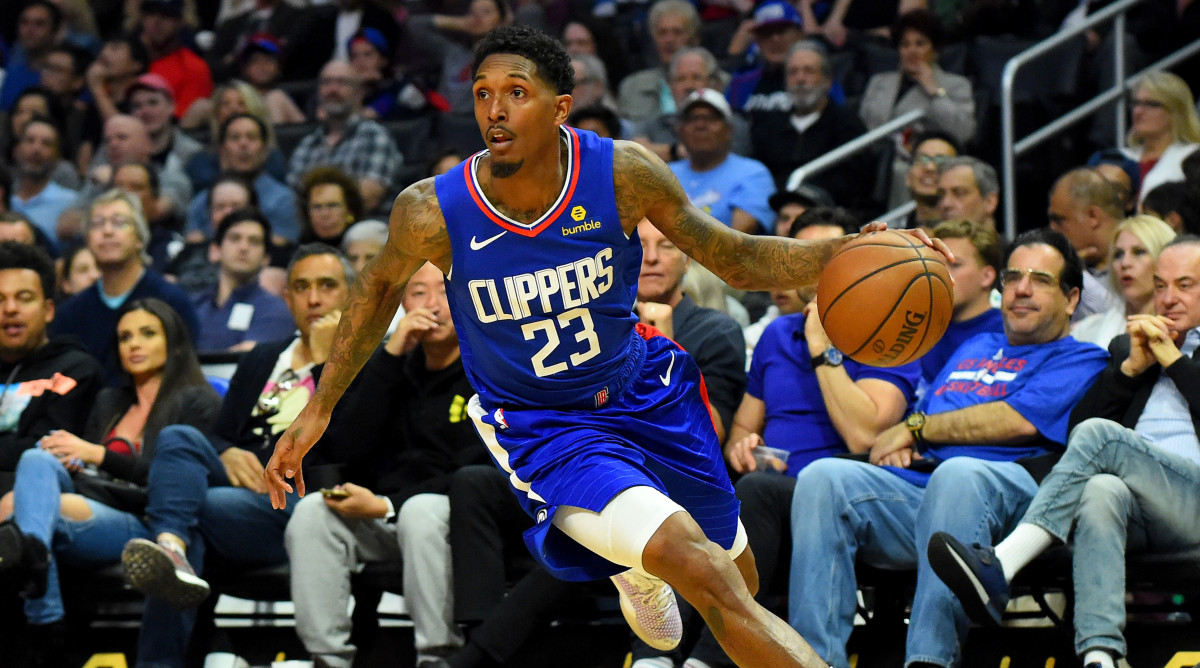
Sixth Man of the Year
Chris Ballard: Lou Williams, Clippers
Jamal Crawford 2.0 keeps on keepin on. Williams has won this award twice. A third victory would be well-deserved, even if the “sixth man” designation feels a bit tenuous when you’re a team’s engine. Then again, so was Manu at times. Advanced stats don’t love Lou but the same went for Jamal. Domantas Sabonis has a strong case but the edge here goes to Lou for helping carry the Clippers to an unexpected finish.
Chris Mannix: Lou Williams, Clippers
I really, really, really wanted to go Domantas Sabonis here, because someone in Indiana needs to be recognized for the season the Pacers had. But Williams going scorched earth in key games in the second half of the season when this Clippers team badly needed it—40 points against OKC, 34 against Boston—with eight 30-point games on his resume this season sealed it for me. Can we just create an award for the Pacers to win?
Rob Mahoney: Lou Williams, Clippers
One of the best pick-and-roll guards in the league just happens to come off the bench … and one of the best pick-and-roll finishers in the league just happens to be his teammate. This has been a banner season for Clippers reserves, as Williams and Montrezl Harrell essentially served as co-catalysts for a 48-win team. Either could rightly start or justifiably demand it. Instead, both added to L.A.’s rotational flexibility and completely dominated the roles they were given. Williams, at age 32, has had a special year: productive (Williams averaged 20 points and five assists per game off the bench for a second straight season), dynamic, and undeniable. Let’s get the man the award he’s owed and be done with it.
Andrew Sharp: Lou Williams, Clippers
This is easy. Lou Williams was incredible this season, and he's the platonic ideal of a sixth man award winner. The only reason I’d hesitate about this vote is because I’d prefer to give the award to Montrezl Harrel and Lou Williams as a pair, something that would reflect exactly how much fun the Clippers bench has been all year long. On the bright side, Williams already has two of these awards—maybe he can lend the third to Harrell.
Rohan Nadkarni: Lou Williams, Clippers
Williams leads the Clippers—another surprise playoff entrant—in points and assists despite coming off the bench, and playing less than 30 minutes per game. Williams is essential to the Clippers, and his importance to the offense only grew after Tobias Harris was shipped to Philly at the trade deadline. Williams is a gunner and he’s won this award twice before, but this year’s coronation feels a little different. Lou is as deserving as ever to be SOMY, but now the award can serve as an added boost of recognition for what he’s done for a Clippers team that seemed to be more interested in this summer than making a playoff push.
Jeremy Woo: Lou Williams, Clippers
The Clippers handily making the playoffs while their best player continues to come off the bench (and fine-tune his game into his 30s) is a pretty remarkable thing. His production is not always efficient, but it’s consistent. In the context of an entertaining, overachieving L.A. team, Williams will have certainly earned his third one of these. He’s scored more bench points than anyone in the history of the NBA, and will own this corner until further notice.
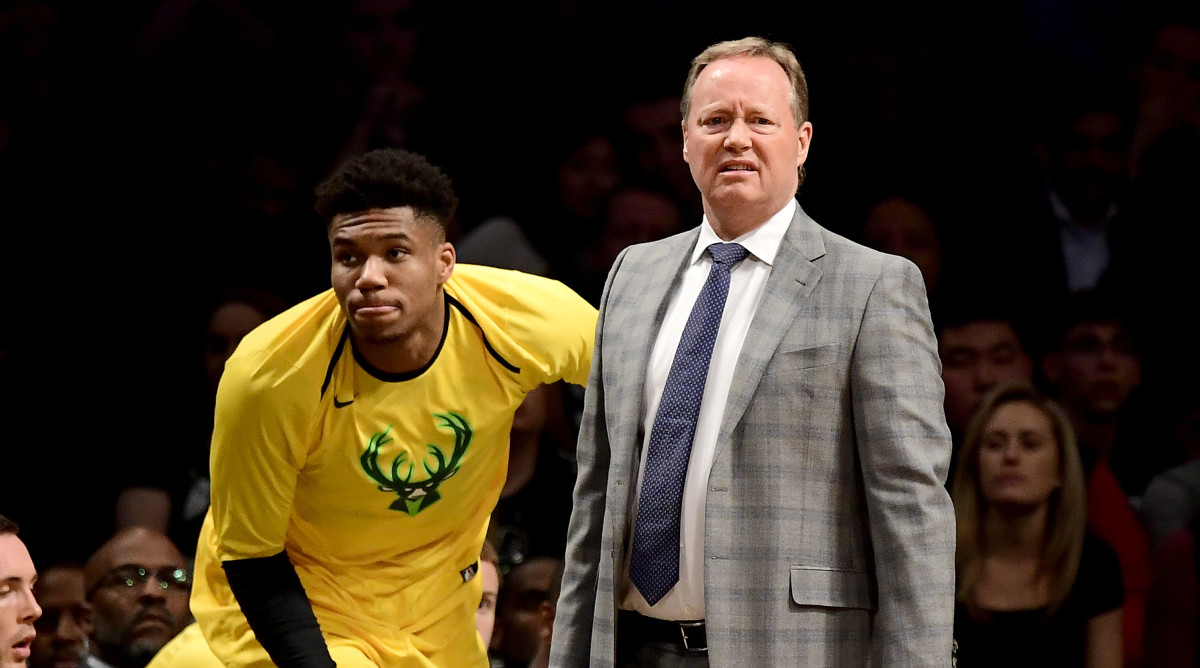
Coach of the Year
Chris Ballard: Mike Budenholzer, Bucks
Nate McMillan is deserving, as is Doc Rivers. But, as I recently wrote about, the Bucks’ transformation is so dramatic on both sides of the ball—with minimal roster overhaul beyond the suddenly-magical Brook Lopez—that Bud deserves to win his second trophy.
Chris Mannix: Mike Malone, Nuggets
Another brutal call. Budenholzer molded Milwaukee from a low-seeded, first round loser into a Finals contender, Doc Rivers pushed the Clippers forward after the Tobias Harris trade and Nate McMillan morphed the Pacers from an iso-heavy team that relied on Victor Oladipo to a sharp cutting, screen-setting bunch freeing up Bojan Bogdanovic after Oladipo went down.
Mike Malone gets my vote because of where this team was—on the outside looking in of the playoffs last season—and how his fingerprints are all over the Nuggets success in this one. The Nuggets swarming defense has tightened in every area, it’s young core has improved and every time this team has looked like it could falter, Malone has made sure they stayed together. It hasn’t been a seamless season in Denver, either, with a rash of injuries impacting the team and Isaiah Thomas’s return—and subsequent benching—needing to be navigated. Malone has been brilliant in all facets.
Rob Mahoney: Mike Budenholzer, Bucks
Filling out a three-man ballot for this award is impossible, but I found that the actual winner was fairly self-evident. Mike Budenholzer has the benefit of coming into a new job, which more cleanly displays his before-and-after value. He inherited the job from Jason Kidd via Joe Prunty, who, by the end, were running untenable systems. He coaches Giannis Antetokounmpo, which is enough to make almost any coach look good. All of these are fair qualifiers, and still it seems safe to say that Budenholzer has had the biggest strategic and culture impact of any coach this season. It honestly takes a kind of magic for a team to coast their way down the stretch to 60 wins, and Budenholzer found it.
The offense was completely remade, modernized to break any cute, overloading pressure or prerotation. Although the conclusion itself wasn’t rocket science, Budenholzer created an architecture that all but forces opponents to guard Antetokounmpo one-on-one. A complete change in defensive philosophy has made Milwaukee both the most prohibitive interior defense in the league and the best defensive rebounding team in the league—an area in which the Bucks ranked 30th last season, per NBA.com. So many coaches have done wonderful work this season. Only one, however, brought about such significant change while playing the long game and still coached his team to a historically (and unexpectedly) dominant season.
Andrew Sharp: Mike Budenholzer, Bucks
It's really difficult to pass up the chance to reward Doc Rivers here, but think back to the end of last season in Milwaukee. Eric Bledsoe was a mess, Khris Middleton looked like an underwhelming second option, the team struggled to optimize Giannis, there was no depth.... The Bucks roster looked fatally flawed and there were no clear solutions on the horizon. A year later, after overhauling the systems on both offense and defense, they have come together to form a full blown juggernaut.
We'll see what happens to this team in the playoffs, and there other coaches who deserve love (Rivers, Malone, Stotts), but there's no coach in the NBA who's made a bigger impact than Budenholzer.
Rohan Nadkarni: Gregg Popovich, Spurs
The Spurs are somehow in the playoffs, winners of 48 games with a rag-tag squad of mid-range shooters, reclamation projects, and obscure homegrown talents. San Antonio lost Kawhi Leonard, Manu Ginobili, and Tony Parker, and Pop kept the team rolling into the postseason. I don’t understand how he’s not earning more plaudits for this. Pop will be the best coach in the league until the day he walks away. He could easily win this award every year, and I think he’s done just as good a job as anyone else in the league.
Jeremy Woo: Mike Budenholzer, Bucks
There are a handful of very good candidates here, but ultimately, what Budenholzer has done in one year at the helm has been pretty remarkable. Obviously, the Bucks have flourished, improving on both ends of the ball, getting more out of Giannis, and earning the top seed in the East. They’re the only team that won 60 games this season, and the team has transformed under Bud’s oversight. Other teams have exceeded expectations in various ways, but the Bucks have dominated from start to finish. It’s enough for me.
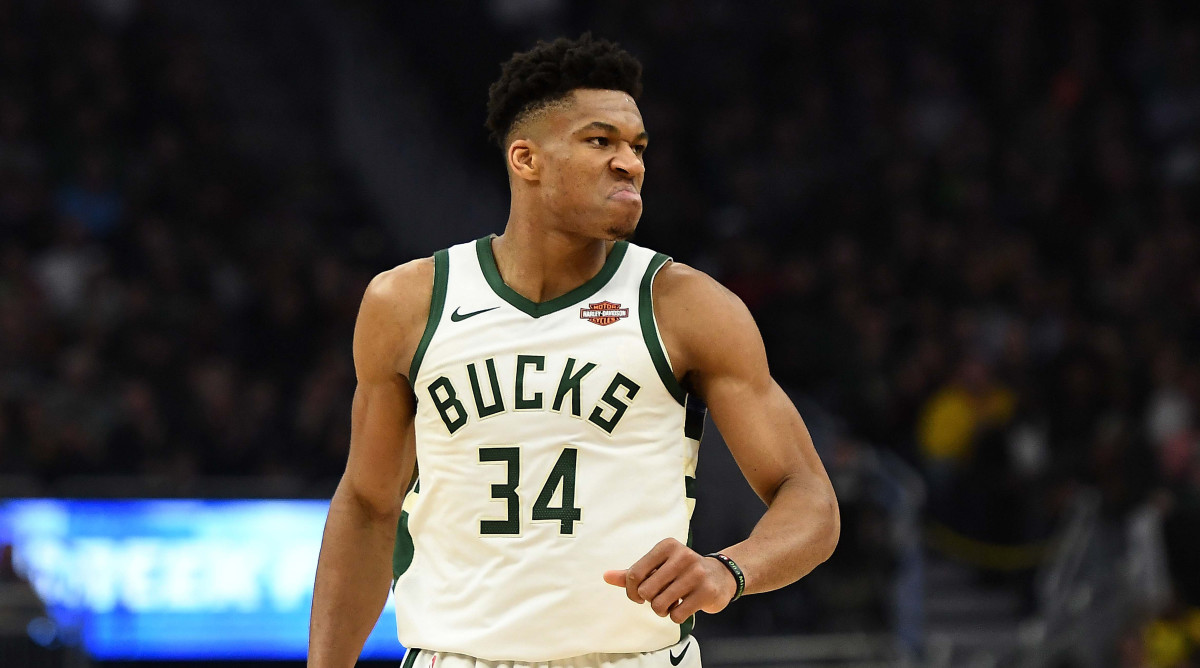
Defensive Player of the Year
Chris Ballard: Giannis Antetokounmpo, Bucks
This one’s tough. Paul George, Embiid, and Gobert have valid cases but the nod here goes to Giannis. This is not a slight to Gobert, who led the league in Defensive Win Shares and defensive +/-, per basketballreference.com. Rather, this is a testament to how much Giannis had to do. Defend point guards and centers, lock down the rim helpside, and provide that chasedown threat that strikes fear in would-be breakaway dunkers. No defensive hole exists that he can’t plug. That type of versatility is unprecedented.
Chris Mannix: Giannis Antetokounmpo, Bucks
This one was excruciating. Rudy Gobert continues to be the most singularly disruptive presence in the paint. He challenges everything, is solid on the pick-and-roll and rival coaches cite him (at least to me) as the player they most have to prepare for, defensively. Kawhi Leonard locks down everyone put in front of him. But Giannis—is he just, Giannis now, by the way?—has had a tremendous defensive season. He’s 6'11" and can defend 6-foot guards and 7-foot centers, he’s a fearsome shot blocker in his own right, he’s second in the NBA in defensive rating and is the leader of the NBA’s No. 1 defense—the Bucks allowed almost two fewer points per 100 possessions with Giannis on the floor. As important as he is to Milwaukee offensively, he’s just as important defensively.
Rob Mahoney: Giannis Antetokounmpo, Bucks
There isn’t a defender in the league more versatile than Antetokounmpo, nor a time in the league where that versatility matters more than the present. More is demanded of bigs with every passing season. They’re forced to cover more ground, handle a wider variety of matchups, maintain clear lines of communication in the face of the most sophisticated offenses yet, and while they’re at it, cope with an ongoing series of offense-friendly rule changes. The NBA is a scoring league, and its best defenders are those who find ways to stall entire systems designed to overwhelm them. Antetokounmpo does this most effectively, in part because his game allows him so many points of attack. On a given night, Giannis could completely shut down an opponent’s pick-and-roll infrastructure, quarantine the rim, smother a crucial scorer at almost any position, dominate the defensive glass, roam to the point of discouraging passes entirely, and blow up enough fast breaks to shift the balance of a game. Rudy Gobert would be an excellent and worthy choice. Antetokounmpo simply has a different kind of case given the breadth of his utility—one I find persuasive given the complexities of the modern game.
Andrew Sharp: Rudy Gobert, Jazz
The Jazz have finished the year strong, the defense is elite, and Rudy Gobert remains a system unto himself. Giannis has a good case for this award as well, and I probably would have chosen Embiid if all things were equal. Unfortunately, they're not.
Embiid's been crucial to Sixers success, particularly on defense, but he's only played in 64 games this season. Gobert played in all 82 for Utah, and he's played 400 more minutes than Embiid. That's the tiebreaker for me, and given some of the nagging injuries Gobert dealt with early in his career, his newfound durability is one of the better unsung stories in basketball. It's why he's the defensive player of the year for the second season in a row.
Rohan Nadkarni: Giannis Antetokounmpo, Bucks
Giannis, Rudy Gobert, and Paul George all have strong cases here. (So would have a healthy Joel Embiid.) The Freak is my pick because I like his versatility, and how that unlocks Milwaukee’s league-best defense. Like Gobert, Giannis is a force in the paint. Like George, Giannis can lock somebody down on the perimeter. This is a tough award to hand out. I’m not going to bang the table for any of these guys, each of them would be a sensible pick.
Jeremy Woo: Giannis Antetokounmpo, Bucks
No, I did not pick Giannis for MVP, but yes, he deserves credit. The Bucks’ stifling defense is well-drilled and a team effort, but it wouldn’t work without him being able to freelance away from the ball and alter angles with his absurd length. He’ll cover ground, take away passing lanes and protect the rim as well as anyone, and while we’ve talked a lot about his ascension as a player, he probably still isn’t getting enough credit for his work on this end. The advanced stats love him, too. Sorry, Rudy Gobert.
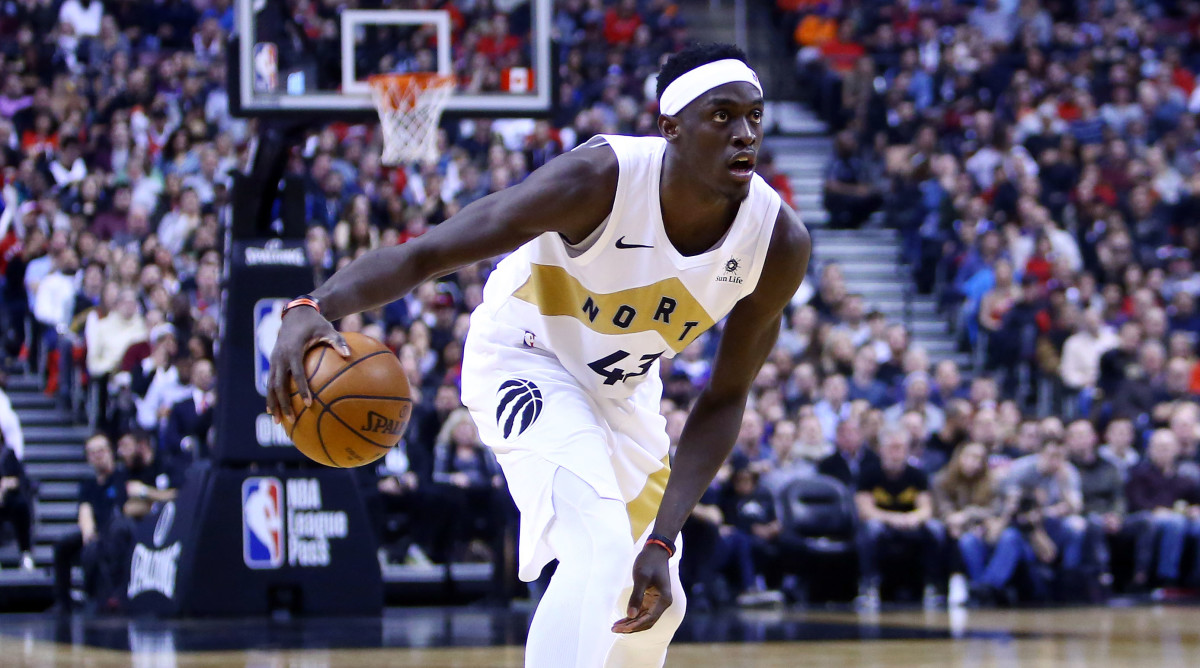
Most Improved Player
Chris Ballard: Pascal Siakam, Toronto Raptors
Siakam made the leap from High Potential Guy to Glue Guy to Maybe a Future All-Star? in a matter of what felt like months. It’s reminiscent of the leap Paul George once made, or Draymond Green. Cleaning the Glass has him at a ridiculous +15.4 this season in efficiency differential (how much better the team is with him on the floor per 100 possessions). That’s up from +2.2 last season. He can score in transition and isos and knows how to play off stars. He’s a beast on defense. This is a guy every team in the league would love to have on their roster. (Honorable mention: D’Angelo Russell).
Chris Mannix: Pascal Siakam, Toronto Raptors
I’ve said this a zillion times, but this is the most subjective category because of what you consider improved. Is it a high draft pick who has had a breakout season? D’Angelo Russell is your man. Is it a late-first round pick who busted out? Vote Siakam. Is it the guy who was kind of a star, who you knew was going to be a star and then became a star? Look at Nikola Jokic. The voting can be all over the place.
I fall into the Siakam camp. His scoring has jumped nearly 10 points, his rebounding and assist numbers are up and he and Kawhi Leonard are like defensive stickum on the perimeter. Nick Nurse harnessed Siakam’s ball handling and playmaking skills when he made him a point forward, and Siakam has responded. His offensive game has diversified, both in the post and in iso situations, and he is a menace in the open floor. Siakam—the 27th pick in 2016—is the kind of draft hit you need when you are building a contender.
Rob Mahoney: Pascal Siakam, Toronto Raptors
No player in the league reframed their career so dramatically as Siakam, who seems to have plucked stardom from thin air. It wasn’t long ago that the Raptors forward was a sort of novelty: always energetic but glaringly limited. This season, Siakam blended pep with touch, length with understanding, and athleticism with technique. Not only is he the kind of end-to-end sprinter that no one wants to chase, but a skilled player who knows just what to do with all that momentum.
Between Kawhi Leonard’s prescribed absences, Kyle Lowry’s periodic injuries, and some spotty bench play, this could have been a tumultuous season for the Raptors. Instead, Siakam smoothed things over with his work as a secondary creator—a sentence that might read as alien to someone who was only familiar with his work last season. There are just so many subtle ways that Siakam picked up his play beyond a bump in scoring, though the fact that he also boosted his output (not just on a per-game, but on a per-minute basis) for good measure really cements his case.
Andrew Sharp: Pascal Siakam, Toronto Raptors
D'Angelo Russell's had the kind of season that would win this award in almost any other year. That said, I have to go with Siakam for two reasons.
First, while Russell has the pedigree of a player who blossoms into a franchise leader, Siakam went from late first round pick and an intriguing bench player to a legit star for a Raptors team that won 58 games. His story is more remarkable and more in line with what this award is supposed to signify.
Second, while Russell arguably played a bigger role for the Nets, that category might be closer than it seems. The craziest story of Siakam's season is just how crucial he's been in Toronto. This 58-win Raptors season has come with a ton of absences for Kyle Lowry and Kawhi Leonard, and Toronto never really skipped a beat. Siakam was a huge reason why—something that would have seemed crazy as recently as six months ago.
Rohan Nadkarni: D'Angelo Russell, Brooklyn Nets
Siakam or D-Lo both make sense here. I like D-Lo because he not only improved his game through his best James Harden impression, but he was a major factor in the Nets turnaround from lottery dweller to sixth seed. I understand Siakam played a major role and was often the Raptors’ second-best player, but he was still surrounded by more talent than Russell. Brooklyn was left for dead at multiple points this season, thanks in large part to injuries. But Russell often put the team on his back, and carrying the Nets to a surprise playoff berth—and seriously, the sixth seed!—deserves a reward in my book.
Jeremy Woo: Pascal Siakam, Toronto Raptors
There probably isn’t a great argument for anyone else but Siakam, who has given the Raptors an element nobody expected. His increased production doesn’t even entirely tell the story when it comes to skill development. How many players ever see a 15% uptick in three-point percentage? He’s gone from energy guy to a legitimate two-way stretch big, and Toronto has an embarrassment of riches up front as a result. It should be a treat to see even more of him in the playoffs.
